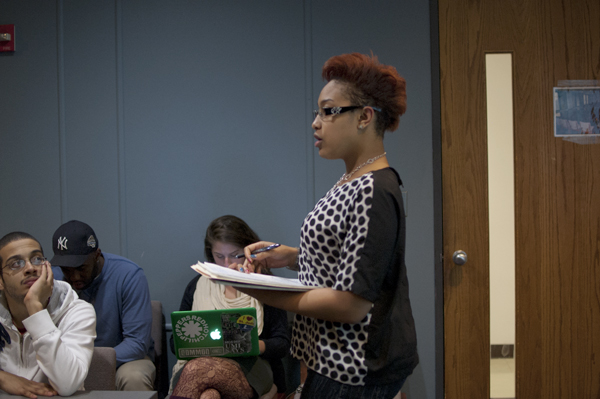
 The New Paltz Student Association (SA) is telling its clubs to sober up.
The New Paltz Student Association (SA) is telling its clubs to sober up.
Senators and SA officials will be addressing clubs and organizations commonly used — but strictly prohibited — practice of hosting events at establishments that serve alcohol in their charter applications next semester to adhere to insurance policy guidelines.
“SA groups have never had permission to host events at liquor establishments, and they are not allowed to advertise with them or connect their name with them,” SA advisor and Director of Student Activites and Union Services Michael Patterson said. “What has happened more recently we have noticed it has been advertised publicly through social media outlets which is a fairly large liability concern. It’s not something the SA insurance program supports — they…have told the SA they will not continue to insure them if these practices exist.”
Over the past years, clubs and organizations who have hosted events at liquor-serving establishments have used pseudonyms or other ways to mask the identity of their club; however Vice President of Academic Affairs and Governance Ayanna Thomas said SA’s insurance provider became aware of the club’s insistence to host at these places and alerted SA.
“[Some groups] even host events under pseudonyms and it’s pretty obvious that they are still the organization that is hosting it,” Thomas said. “Our insurance company realized this as well, they’re not stupid people. [Patterson] said they are able to put two and two together and figure out it’s the same organization hosting the bars, and it’s problematic.”
Thomas said the risk of being sued by someone injured at an event hosted at a bar or similar establishment is a huge concern for the SA due to the possibility of having to be put through a litigation process where they would be unable to protect themselves.
“If, worst case scenario, someone gets drunk at the bar and dies, they could sue the school because they died, and the bar has liquor liability but the SA doesn’t,” Thomas said. “That means we can’t protect ourselves from being sued at all.”
If the SA were dragged into a litigation process, Patterson said it could potentially bring the governing body to a halt and bankrupt their budget.
“It only takes once before the SA goes broke,” Patterson said. “If there is litigation out there, lawsuits can go for millions and millions of dollars. It’s no secret what the SA budget is — that could swallow up the money for years — it would essentially shut down everything.”
Despite there being no wording in the SA Constitution outlawing connection to alcohol-serving establishments, Patterson said SA organizations were routinely told they were not allowed to utilize these places because of SA guidelines.
Patterson said he understands organizations’ interest in hosting fundraising events at places like Cabaloosa’s or Murphy’s, but hopes clubs will be able to understand where his office is coming from as well.
“I understand why they have incentive to do these things for their clubs, they are attracted to them because it’s a lot of money fast,” Patterson said. “It’s in everyone’s best interest to understand where these rules are coming from, and [that] there are other avenues to fundraise that are out there. I encourage groups to be creative on how to fundraise in an appropriate way.”
Linda Lendvay, SA’s disbursing agent, said when clubs would come to SA to get approval for flyers advertising events at a bar, they would be denied. However, those who continued to do so also would not report the money they made.
“If you are recognized by the SA, you can’t have an outside bank account,” Lendvay said. “All the money you make comes here, that’s not our rule — its SUNY guidelines. There are some clubs who have been doing this and where has that money been going? What has that money been used for?”
Next semester, Thomas said the semester charter each organization is required to sign to be recognized by SA will be changed to address this issue.
In addition to the normal charter format, a contract will be attached that will require the president or vice president of each club to sign off of their knowledge of the liquor liability issue, among others.
“The contract simply states that each club needs to adhere to the SA guidelines [and bylaws], including the liquor policy,” Thomas said. “It’s just to protect the school from being sued.”
While he knows this new enforcement might anger some clubs and organizations, Patterson said he hopes they will understand the severity and necessity the SA needed to undertake.
“It’s always better to be preventative than reactionary, and by looking at this now, though for some of our groups it might seem like it’s the end of the world, it’s a practice that has never been approved or authorized,” Patterson said. “It’s an opportunity for us to right the course before something big happens.”
